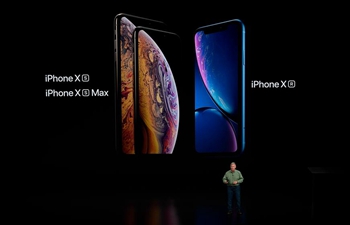WASHINGTON, Sept. 13 (Xinhua) -- American researchers have found that plastic products meant to replace the plastic ingredient known as bisphenol A, or BPA, are causing genetic abnormalities in mice.
The study published on Thursday in the journal Current Biology revealed that alternative bisphenols now used in BPA-free bottles, cups, cages and other items appeared to come with similar reproductive problems for their mice.
BPA has long been used in bottles, cups, medical and dental devices, and as coatings for food-can linings and cash register receipts. Twenty years ago, the researchers linked abnormalities in egg chromosomes to BPA released by a harsh detergent used on her lab's mouse cages.
"There's growing evidence that many of these common replacements are not safe," said Patricia Hunt, a professor in Washington State University's School of Molecular Biosciences and lead author of a study.
Hunt's team found that mice exposed to the common BPA replacement bisphenol S, or BPS, underwent changes in the way the germ cells in their testes and ovaries copy and splice DNA while producing sperm and eggs.
Both sexes had problems getting DNA to recombine correctly, leading to a reduction in viable sperm and an increase in abnormal eggs, according to the study.
Similar results went with the replacements BPF, BPAF, and diphenyl sulfone. Problems in the male germline lasted several generations after the initial exposure.
Hunt also suspected that other widely used and endocrine-disrupting chemicals, including parabens, phthalates, and flame retardants, might be having similarly adverse effects on fertility.
















